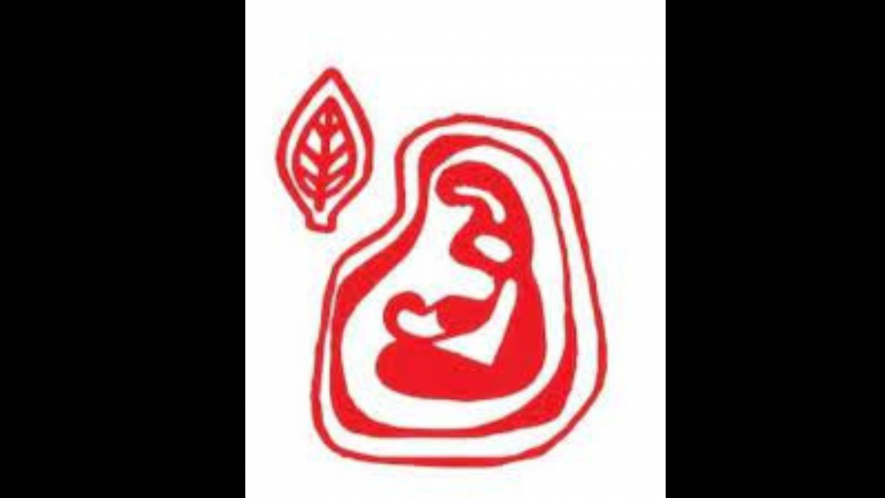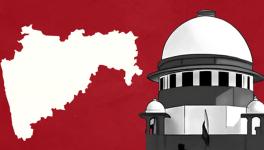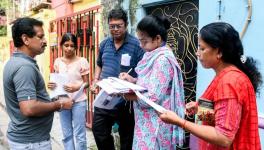NFIW Team Finds Manipur Violence Sponsored by State

Logo of NFIW. Image Courtesy: Facebook
A three-member fact-finding team comprising National Federation of Indian Women (NFIW) general secretary Annie Raja, national secretary Nisha Siddhu and Delhi-based lawyer Deeksha Dwivedi that visited Manipur from June 28 to July 1 found that “it was a State-sponsored violence” with the government “continuing its provocative actions”.
The team has called for disarming all groups and individuals, restoring peace and the immediate resignation of chief minister N Biren Singh.
In a press statement released on Tuesday, NFIW said that it visited the state following the “gross breakdown of constitutional bodies, apparent suspension of the right to life and the absolute State apathy towards the crisis”.
Before visiting Manipur, NFIW had a series of meetings with Kuki and Meitei women who had fled to New Delhi. “These meetings with the uprooted women gave a sense of urgency to NFIW and accelerated our resolve to initiate democratic intervention in the ongoing situation to bring back peace and stability in the state, especially for women and children.”
The team visited three relief camps in Imphal East and the Regional Institute of Medical Sciences on June 28 and two more relief camps in Moirang (Bishnupur district) and the district collector’s (DC) office on June 29. Later in the evening, the team also visited IMA Market and spoke with Meira Paibis.
On June 30, the team visited Churachandpur district and met many victims of the violence at relief camps, including two young girls who were brutally assaulted by a mob of Meithei youths. The team also met Churachandpur’s DC and Bishnupur’s assistant collector of Bishnupur district and suggested ways to improve the condition of relief camps.
On the last day of the visit, the team visited Manipur Baptist Convention Centre Church and Catholic Bishop House in Imphal West District.
The team, shocked by the sheer devastation caused by the violence, said: “What is occurring currently in Manipur is not communal violence nor is it merely a fight between two communities.”
The violence involves the “questions of land, resources, and the presence of fanatics and militants. The government shrewdly carried out strategies to materialise its hidden pro-corporate agenda, which has led to the current crisis”, it alleged.
Terming it a “state-sponsored violence”, the NFIW said that it “didn’t occur without any build-up. A clear backdrop of mistrust and anxiety was stoked amidst both communities by the ruling dispensation at the state and Centre to precipitate a full-blown civil war-like situation”.
“Many incidents” that occurred in March and April “clearly indicated the possibility of violent clashes. But the government ignored them and allowed the brutal violence to happen”.
Explaining Manipur’s socio-political history, NFIW said: “The society was hierarchically organised with the Meiteis being the dominant community and the Kukis being looked down upon as ‘uncivilised’. The constitutionally guaranteed affirmative action policies resulted in the Kukis achieving some degree of social mobility by gaining education and entering government jobs”.
The Kuki community’s “mobility has generated general anger and dissatisfaction amongst the majority Meitei community”.
Instead of taking steps to safeguard the lives and livelihood of the people of Manipur, the “government continues its provocative actions, which further deepen the anger and rift between two major communities”, it alleged.
NFIW mentioned some of the incidents that led to the violence:
-
The demolition of three churches by the government in New Chekon on the pretext of being built on encroached land.
-
The eviction of Kuki villagers from Kangpopki and Tengoupal areas and the demolition of their houses in the name of forest preservation and wildlife protection.
-
The High Court’s order granting ST status to the Meiteis.
When the All Tribal Student’s Union Manipur took out a peace rally against these incidents in Churachandpur district on May 3, violence started, the team said.
“The Kukis have alleged that the Meiteis were angry with the peace march. Therefore, they tried burning the sacred Indo-Kuki War Memorial. The Meiteis had come in large numbers to Churachandpur and marked the houses of Meiteis and Kukis in advance.”
As both communities accused each other of attempting to raze the memorial, “militants, fanatics and miscreants took advantage of the troubled situation”.
“On May 3 and 4, most of the houses were burned. It was shared that the security forces, including the state police, were lax and lethargic in controlling the violence. The chief minister was busy hosting the vice-president and uploading pictures on Twitter till 7 pm while the state was burning,” NFIW alleged.
Both communities are “unhappy and angry with the chief minister for mishandling the situation”, the team found.
Regarding the relief camps, the team said that “most are being run with the efforts of well-meaning citizens and civil society organisations with very limited support from the government”.
“The condition of the relief camps reflects the state government’s disinterest regarding the well-being of the displaced and victimised citizenry. This is disrespectful to the dignity of the victims of violence.”
Most of the people in the camps are daily wagers and ordinary people, the team found. “Children and young people are worried about the uncertain future as they cannot continue their studies or pursue employment opportunities.”
Besides, they are unaware of any FIRs or compensation offered by the state government. “It also came to light that the state government set up no Compensation Claims Commission.”
The camps have persons aged 1 month to 80 years and above and many pregnant women. “Persons with various health conditions are struggling without proper medical attention,” NFIW said.
“Besides, the food the government provides is insufficient, especially for infants, the elderly, and pregnant and lactating women. There is also a massive shortage of clean water, sanitation, and sanitary pads.”
Despite the crisis, the state government and its machinery “remain defunct”. “The criminal apathy of the Union government exacerbates the prevailing grim situation. Its current inaction and the preceding selective actions are sustaining the unabated violence. The state and its private agenda have curated the grotesque present of Manipur.”
NFIW said that the people of Manipur want peace and normalcy back. “They remain wary of the dubious role played by the governments and the various security forces. Safety and security have become the responsibility of the people. They also remain keenly vigilant against violent fringe groups.”
NFIW also demanded confidence-building measures involving all stakeholders, particularly women’s organisations, a high-powered/Supreme Court-monitored inquiry and justice process, registration of FIRs, a Constitute Compensation Claims Commission, urgent improvement of the conditions in relief camps, time-bound relief and meaningful rehabilitation with livelihood opportunities, steps to ensure the continuity of education of students and a buffer zone with same security forces on both sides.
Get the latest reports & analysis with people's perspective on Protests, movements & deep analytical videos, discussions of the current affairs in your Telegram app. Subscribe to NewsClick's Telegram channel & get Real-Time updates on stories, as they get published on our website.
























